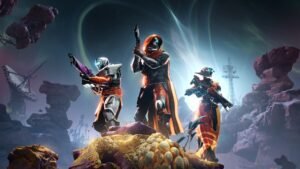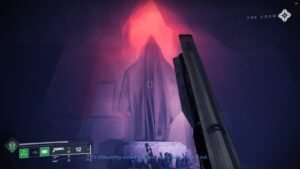At this point, everything that has happened with The Day Before just seems like a farce. What a journey this game has taken, from the most wish-listed at launch to the most ridiculed game at release. Considering how many broken games we have seen at launch, that is saying something.
When they had delayed the game with no tangible evidence, I had pretty much dismissed the legitimacy of the title. But when Fntastic didn’t just fade into the woodwork and still kept pushing The Day Before, I did begin to wonder if I had it wrong.
Maybe they do have a game there, I wondered. Game development is hard and maybe I am just being judgy.
Then the game came out… and woof! I think I will just let our review of The Day Before talk about what a disaster that was.
This got me thinking – how did Fntastic spin this web? They had to have known that they did not have a working game.
Did they think that the players would be forgiving, and, like Cyberpunk or No Man’s Sky, they could recover it later? Were they just caught in development hell where they used the standard cover of secrecy and long development cycles to hide that they were struggling?
How did so many people believe and hold onto the hope that this game would be something? Even after Fntastic’s less-than-stellar track record and some incredibly questionable actions.
The Fntastic-al Story Of The Day Before
There are dozens of articles out there that explain The Day Before story in detail, but I will summarize it.
All of this started with a gameplay trailer all the way back in 2021. The Day Before Seemed like it had potential and looked like it could be fun to play with my friends. But after that, the developer never released anything of value.
Follow-up videos seemed scripted and didn’t really elaborate on the important stuff. We didn’t see any true improvements to mechanics. For a Zombie game where we would have faction enemies, we saw no combat. Forget enemy AI; there was no clear illustration of the open world or even what survival would look like.
Then there were all the other red flags. Delays without clear updates or reasons, a lack of a track record of finished products, and asking for volunteers to put the game over the finish line. And some interestingly defensive social media posts.

But somehow at the end of it, thousands of people still thought… maybe… maybe there is something here. So, they bought the game, logged in, and collectively facepalmed. I know I did.
How Fntastic Even Got Here
The ‘Standard’ Need For Secrecy
For the average person, game development is this nebulous, mysterious thing. It’s long, tedious, requires more skill than I have, and has so many interdependencies that anything can go wrong. So, when a game comes out and it works with minimal glitches, it is a miracle because there is no way any developer can prepare for everything. Let alone an Indie studio like Fntastic.
It can sometimes take a lot of pointed questions to ever realize that the Wizard of Oz is just a man behind the curtain working a machine. And as much as I am joking about this, the secrecy exists for a good reason. It’s standard practice for everyone.
Most companies developing any kind of product keep it secret so that no one can steal their IP or reuse it to release something similar earlier. They tend to be so strict about it that even if something similar is released, studios will cancel their projects. Or in the case of GTA 6, release the trailer earlier.
They are also careful about what information they release to avoid disappointing fans. I mean… let’s be honest here. Some of us, at times, can be rather rabid. It’s a fine balance of keeping everyone excited without releasing information that fans might latch onto. After all, depending on the development, studios will change tracks or abandon features and characters. It is all part of the creative process, and people can be unforgiving or unaccepting of changes.

It was easy to assume that Fntastic put out limited information to avoid these pitfalls. When I saw the scripted videos and limited gameplay information, I thought they were still figuring out key gameplay elements. Even big studios sometimes only figure out or finalize key elements for gameplay late in the development cycle.
But with Fntastic, this standard curtain hid a lot more than IP. It hid massive problems with the game.
We Have Short-Term Memory For Long Development Cycles
Making sure that everything works correctly, especially with all the interdependencies of the giant system that is a game, can only be done with two things: Time and Money. And both are super expensive. The bigger this system or game, the longer the development cycle and way more possible points of failure.
Things change, and sometimes the studio can’t tell everyone about everything that has changed or why. It is just a fact of life. But that also allows the studio to hide behind half information and other releases. Most of the time, it isn’t intentional. But I think Fntastic strategically and intentionally used Time to hide these issues.
What we do need to look at is how the studio deals with those points of failure. Do they give players the needed information? Look at how Ubisoft made sure we got information about Skull and Bones with every delay. Do they apologize and fix things with a broken launch like CD Projekt Red did with Cyberpunk? Or do they throw smoke and then bail like Fntastic?
Fighting For The Indie Developer
All being said, we aren’t in the studio with Fntastic. We don’t know if they were truly trying for something else with The Day Before. In which case, why lie? They could be out there, right now, mourning the loss of their dream. Sitting here in my corner of the world… I can’t say.
At the end of this fiasco, I have one concern: This experience with The Day Before can make many gamers more distrustful of Indie studios who are just trying their best with limited resources. For them, I have one message.
We as gamers need to recognize these green and red flags so that we can support the developers actually making amazing products. And it’s a simple enough list:
- Clear, consistent updates that show progress or change
- Gameplay information that evolves
- Believable demos and videos that clearly show the game no matter how rough it is.
With all this, we have to recognize that studios can and should be allowed to use their historical performance as a basis to not show information. They are allowed to protect their games. Just as they have a right to not be trolled for changing elements or changing their minds. To quote Fntastic, shit happens. It’s how the studios deal with it that is what should give us confidence.
And to all those small developers out there… we have your back. You keep doing you.

As for The Day Before, we will remember it as a chaotic mess that put its developer out of business. We should laugh and put it behind us and appreciate the amazing year of gaming that was 2023.





